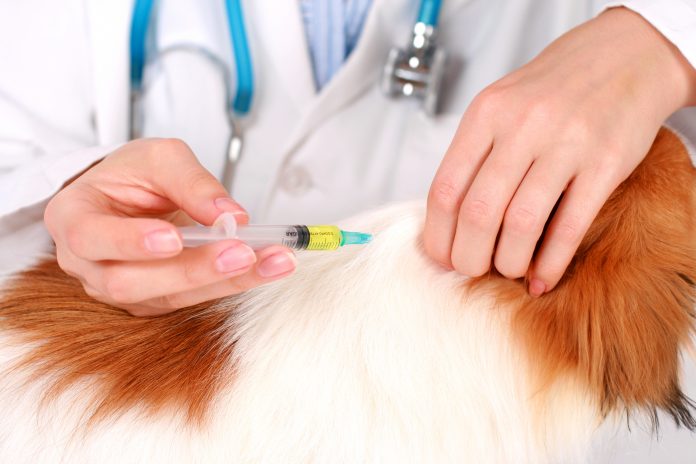
One of the things that really surprises me is how little people know about the topic of Pet Medications. Just like humans, pets also have a collection of medications that serve different purposes. Have you ever wondered what actually goes on behind the curtain when you take your dog to the pet to have his shots?
Human beings are at risk of contracting a wide number of infections. This is why vaccines were invented. They help to strengthen the body against several illnesses, ensuring that it can mount an actual defense and not succumb. Dogs are no different. They are also at risk of suffering from a number of illnesses and infections. So, if you want your dog to live a longer healthier life, it is always advisable that you vaccinate him. There are different vaccines that help prevent different diseases. There are also different ways that you can pair the vaccines to achieve a better effect or increased protection.
However, before you go around blindly vaccinating your dog against everything, it is important to know that the exercise comes with its own collection of risk. Other than keeping your dog safe, vaccination can also have the opposite effect on your animal and cause some unintended harm. This has raised a debate as to the safety and frequency of some Pet Medications. This is why it is always advisable to stick with one vet or properly document the healthcare procedures that your dog is exposed to. This will allow the vet to properly assess the risk and reward factors of vaccinating your pet and advise you on the best cause of actions to take. Here are a few of the frequent questions surrounding the issue of vaccinating and the most appropriate answers.
What Are Dog Vaccines?
The explanation for vaccines is the same all way round despite the species of animal that is getting it. A vaccine is an attenuated virus or disease-causing organism introduced into the body to adequately prepare the immune system to defend itself against that specific disease or infection. The attenuated viruses are called antigens and all but mimic the disease-causing organism. They, however, cannot transmit the disease in question to your body. Once the body registers them, it plots the best cause of action to defend itself. Once the immune system has been stimulated, it will be adequately prepared to defend the body in case the disease actually attacks you.
What Level of importance should I attach to them?
All things considered, vaccines are very important to the overall well-being of your dog. They are the first line of defense as far as Pet Medications are concerned. However, you should know that all dogs are different and as such not all of them will require vaccinations. This is where the vet comes in handy. They have enough know-how to determine the dogs that do and don’t need vaccinating. This is determined depending on things like age, the environment, medical history, lifestyle and travel habits of the dog.
My Vet Mentioned Core Vaccines What are Those?
Back in 2006, The American Animal Hospital Association’s Canine Task Force revised the classification of canine vaccines. They grouped them into three categories, the core, the non-core and the not recommended vaccine. The core vaccines are those that are considered vital for the dogs. This classification is based on the severity of a disease, the risk of exposure and the transmissibility of disease to humans.
The vaccines that make this list are:
- Canine parvovirus
- Distemper
- Canine Hepatitis
- Rabies
This means, as far as Pet Medications go, these are the primary vaccines that your dogs are recommended to get by default.
On the other hand, non-core vaccines are determined by the risk of the dog being exposed to a certain disease. So, depending on where you live and the circles that you stick to, you may or may not have to get your dog vaccinated. Some of the vaccines that made it to this list are these that help prevent your dog against:
- Borrelia burgdorferi
- Bordetella bronchiseptica
- Leptospira bacteria
The best thing about Pet Medications is the fact that you do not have to make the complex decision all by yourself. You can always rely on the expertise of your veterinary to determine how you should take care of your pet.

0 Comments